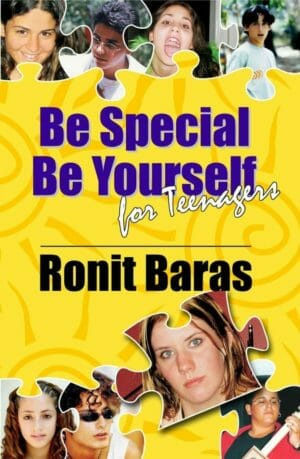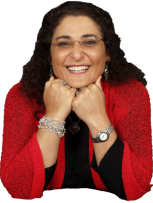Be Special, Be Yourself for Teenagers will help you inspire and motivate your troubled teens to make it!
From: Ronit Baras, International Parenting and education expert
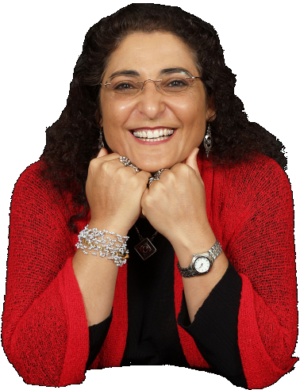 For the last 38 years I have travelled the world speaking with parents about their troubled relationships with their teenage children and helping them to lead happier, healthier lives… and you know what? It doesn’t matter where I am in the world, the concerns and worries of parents are much the same, irrespective of what country I am in!
For the last 38 years I have travelled the world speaking with parents about their troubled relationships with their teenage children and helping them to lead happier, healthier lives… and you know what? It doesn’t matter where I am in the world, the concerns and worries of parents are much the same, irrespective of what country I am in!
My work as an educator, life coach and parenting expert means I work with parents and teens to try and help them build strong family relationships, and to teach them both about emotional intelligence. The work I do with parents focuses on giving parents the tools to parent their teens and help them in three main areas:
- to understand their own emotions and provide practical solutions to their problems
- to help them work out their differences, and
- to show them that there are ways to work harmoniously together without either party losing their identity or independence.
After all, isn’t that what we all want for our children – independence and the ability to build their own life and their own identity? It’s just that – as parents – we want them to do it safely, without the increasingly harmful influences that fill their world…
but sometimes teens just don’t see it that way!
Teens want their independence, they want their own way, they want to make their own decisions and… Mistakes!
Teens don’t believe you understand their world! And I can honestly tell you that it’s the same the world over. Even you probably believed the same when you were a teenager! You know that lecturing and demonstrating didn’t work with you and that the nagging, ranting and raving, screaming and shouting just made you more determined than ever to have it your own way. And so it is with your own children.
The good news is: there is a better way!
“Helping teens without going through the pain of raising them”
If you are shocked at how troubled teens are nowadays and unhappy with the amount of time they spend in front of the computer.
If you are worried about increasing teen violence and depression, alcohol, accidents, drugs or sexual exposure.
If you are concerned your teenager may be suffering from obesity or anorexia.
If you want to play an active role in supporting your teens and help them find strength and confidence, keep reading.
Over many years of work and personally meeting hundred thousands of parents and kids I have found that telling stories, as opposed to lecturing, was a great way to inspire, promote self-acceptance and boost confidence in people at any stage of life. I discovered that even in my sessions, stories were a great way to pass on a message. It was mainly true when I worked with kids and teens.
I started focusing on teens when I was coaching parents and running parenting workshops all around the world. I discovered there are many troubled teens out there and that the most challenging period for most parents was parenting during the teen years.
Most parents were using strategies that only made things worse for their relationship with their teens and increased their sense of helplessness. There was much love towards teens but it was hard for most parents to reach and touch their teens.
Adolescents are not monsters. They are just people trying to learn how to make it among the adults in the world, who are probably not so sure themselves.
Virginia Satir
What Parents Want
- Do you want a better relationship with your teen?
- Are you shocked at how troubled and stressed teenagers seem to be nowadays?
- Are you worried about the increasing incidence of teen violence and depression?
- Are you worried about alcohol, accidents, drugs and sexual exposure?
- Are you concerned your teen may be suffering from obesity or anorexia?
- Are you unhappy with the amount of time your teen spends in front of the TV, or on the computer or their mobile phone?
- Do you wish you could play a more active role in supporting your teenager?
- Do you want to help them find strength and confidence?
- Do you just want them to have a happy, healthy, balanced life?
If you answered ‘YES’ to any one of these questions, keep reading!
Over numerous workshops with parents I have gathered alarming fears, thoughts and concerns from both parents and teens. Here is a summary of what parents thought about parenting teens:
- Parents think that parenting teens is not easy
- Parents think there is an increasing gap between them and their teens
- Parents think there is heavy peer pressure on their teens
- Parents think they have “troubled teens” that do not want help
- Parents think there is too much violence and too many unhealthy messages in the media
- Parents think teens will do anything to be accepted by their peers
- Parents think teens spend too much time on their computer
- Parents fear their teens drink irresponsibly
- Parents think their teens are depressed
- Parents think their teens are hormonal and aggressive
- Parents think teens do not value money
- Parents fear their teens are exposed to smoking
- Parents think teens are disrespectful
- Parents fear their teens are exposed to drugs
- Parents think teens do not appreciate what their parents do for them
- Parents fear their teens are exposed to sex without understanding the consequences and do not practice safe sex
- Parents fear for their teens’ health (Bulimia and Anorexia are common concerns)
- Parents feel helpless
The good news:
“If you share any of these concerns, fears and thoughts about your teen, you are normal!”
When my eldest daughter became a teenager, I understood those fears fully, but when I talked to the teens, I realized they were really struggling and they shared similar views on their parents, but from the other side:
 Teens think of themselves as “troubled teens”
Teens think of themselves as “troubled teens”- Teens say the gap between them and their parents is increasing because parents do not “get it”
- Teens say they have a lot of pressure from their parents
- Teens say the computer is their refuge from arguments at home
- Teens think parenting teens should be different than parenting kids
- Teens say their parents do not appreciate or respect them
- Teens think their parents’ expectations are too high
- Teens say their parents do not love them
- Teens think they are lonely in their struggles and they cannot share their troubles with “the grown-ups” because they cannot trust them
- Teens talk about their relationships in terms of “us” and “them”
The good news:
“If your teen expresses the same frustrations, he or she is normal!”
What Teens Want
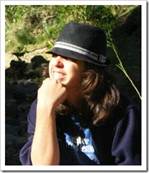 Many parents are frustrated because they think their sweet children turned into monsters when they entered the teen years. I do not think my parents said the same thing about me, because I was worse when I was younger, but working with so many parents in my workshops, I often hear them say, “How could my gorgeous baby turn so nasty?” and “What do our teenagers really want from us?”
Many parents are frustrated because they think their sweet children turned into monsters when they entered the teen years. I do not think my parents said the same thing about me, because I was worse when I was younger, but working with so many parents in my workshops, I often hear them say, “How could my gorgeous baby turn so nasty?” and “What do our teenagers really want from us?”
Teens mostly say they want their parents off their back. This is what they say, but not what they mean.
When I was a boy, my father was so ignorant I could hardly stand to have the old man around. But when I got to be twenty-one, I was astonished at how much he had learned in just seven years!
Mark Twain, Atlantic Monthly 1874
When parents ask me that, I usually ask back, “What did you want from your parents as a teenager?” For some unknown reason, most people cannot recall what they wanted from their own parents. It is as if they forgot how being a teen felt as soon as they became parents.
At first, I t thought it was the passing of years that faded parents’ memories, but the more I think about it I believe it is a form of denial – a kind of selective memory. Every time I hear parents say, “Teens today are worse than the teens in the past”, I share with them research showing that parents today think about their kids and teens exactly the way their parents thought about them 25-30 years earlier.
This means that today’s parents did not know what they wanted when they were teens, which is why they say they have no clue what their kids want now.
Still, it is a very good question.
Working with teenagers, I am reminded of what teens really want and when I read this story about King Arthur and the witch.
I think that although it talks about women, it is actually relevant to teens and humans in general.
King Arthur and the witch
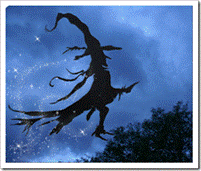 Young King Arthur was ambushed and imprisoned by the monarch of a neighbouring kingdom. The monarch could have killed him, but was moved by Arthur’s youth and ideals, So he offered him freedom, as long as he would answer a very difficult question.
Young King Arthur was ambushed and imprisoned by the monarch of a neighbouring kingdom. The monarch could have killed him, but was moved by Arthur’s youth and ideals, So he offered him freedom, as long as he would answer a very difficult question.
Arthur would have a year to figure out the answer, but if after a year, he still had no answer, he would be killed.
The question was:
“What do women really want?”
That question perplexed even the most knowledgeable men, and to young Arthur, it seemed impossible to answer. Since it was better than death, however, he accepted the monarch’s proposition to have an answer by a year’s end.
He returned to his kingdom and began to poll everybody: the princess, the prostitutes, the priests, the wise men and even the court jester. He spoke with everyone, but no one could give him a satisfactory answer. What most people did tell him was to consult the old witch, for only she would know the answer. The price would be high, because the witch was famous throughout the kingdom for the exorbitant prices she charged.
The last day of the year arrived and Arthur had no alternative but to talk to the witch. She agreed to answer his question, but he would have to accept her price first: the old witch wanted to marry Gawain, the most noble of the Knights of the Round Table and Arthur’s closest friend!
Young Arthur was horrified: she was hunchbacked and looked hideous, had only one tooth, smelled like sewage water and often made obscene noises. He had never come across such a repugnant creature. He refused to force his friend to marry her and have to endure such a burden.
Gawain, upon learning of the proposal, spoke with Arthur. He told him that nothing was too big of a sacrifice compared to Arthur’s life and the preservation of the Round Table. So their wedding was proclaimed, and the witch answered Arthur’s question:
“What women really want is to be in charge of their own life”
 Everyone instantly knew that the witch had uttered a great truth and that Arthur’s life would be spared. And so it was. The neighbouring monarch spared Arthur’s life and granted him total freedom.
Everyone instantly knew that the witch had uttered a great truth and that Arthur’s life would be spared. And so it was. The neighbouring monarch spared Arthur’s life and granted him total freedom.
What a wedding Gawain and the witch had! Arthur was torn between relief and anguish, yet Gawain was as proper as ever, gentle and courteous. The old witch put her worst manners on display. She ate with her hands, belched and farted, and made everyone uncomfortable.
The wedding night approached. Gawain, steeling himself for a horrific night, entered the bedroom. What a sight awaited! The most beautiful woman he had ever seen lay before him! Gawain was astounded and asked what had happened. The beauty women replied that since he had been so kind to her (when she had been a witch), half the time she would be her horrible, deformed self and the other half, she would be her beautiful maiden self.
She asked him which he wanted her to be during the day and which during the night.
What a cruel question!
Gawain began to think of his predicament. He could have a beautiful woman to show off to his friends during the day, but at night, in the privacy of his home, an old spooky witch, or he could have a hideous witch by day, but a beautiful woman to enjoy many intimate moments with by night.
Noble Gawain replied that he would let her choose for herself. Upon hearing this, she announced that she would be beautiful all the time, because he had respected her and had let her be in charge of her own life.
Teens Want the Freedom to Choose
What teens want, just like any woman and any man, is to be in charge of his own life. Yes, they might not have all the skills to do that. Yes, they sometimes make not so healthy choices, but they are not that different from 9-year-old or 27-year-old mistakes. Making mistakes is the best way to learn and when parents who make the choices for their teens guarantee their teens will not to be able to choose by themselves and that life will be chosen for them.
It is hard for parents to let go of this control when their babies grow up and start making up their own minds. But, much like the witch in the story, their ugly side shows as a sign of being controlled.
Teen(r)age: In Search of Love and Uniqueness
To be yourself, in a world that is constantly trying to make you something else, is the greatest accomplishment
Ralph Waldo Emerson
 Many parents report frustration and doubt regarding their parenting when their wonderful children reach their teens. They dread this period and express tension and even fear. Instead of getting closer to their growing children, their child’s first teen birthday marks the formation of “the generation gap”. Teens become emotional, irrational and mysterious. Parents ask themselves “Why do teens behave the way they do? Is it hormonal? Why are they so emotional? Is it normal?”
Many parents report frustration and doubt regarding their parenting when their wonderful children reach their teens. They dread this period and express tension and even fear. Instead of getting closer to their growing children, their child’s first teen birthday marks the formation of “the generation gap”. Teens become emotional, irrational and mysterious. Parents ask themselves “Why do teens behave the way they do? Is it hormonal? Why are they so emotional? Is it normal?”
Maybe a better question is
“What do teenagers really need?”
I believe the answer to the teen mystery lies in one of the greatest challenges of humanity – balancing love and significance. Love is the good feeling we get from positively connecting with others and significance is this feeling of uniqueness, of being special amongst all those around us.
These two seemingly unrelated needs are actually in constant conflict inside us. Having too much of one will take away some of the other and tip the balance. For example, connecting with someone too often or too closely may threaten our sense of identity, but being too different makes it harder to connect. Keeping this equilibrium is part of every person’s life. The question “How much of my uniqueness do I need to give up in order to gain someone else’s acceptance?” starts at birth and reaches its peak importance during adolescence.
Criticism is often directed at teens who jeopardize their health to be liked by their friends or those who cannot stand peer pressure when in fact all their role models (parents included), compromise many of their values to be accepted in their environment. Choosing the latest fashion items, gadgets and accessories, buying the latest model car and putting up with an unpleasant job reveals that parents face the same internal struggle every day of their lives, so there is no wonder their children face it too.
Physical contact is essential for physical and emotional health
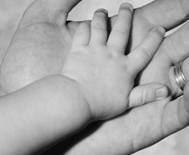 When we were young, our parents expressed their love to us in the form of physical touch, services, quality time, affirmations or presents. In some strange way, some important forms of expressing love changed as we grew older. They changed not because we did not need them anymore, but because they believed that this was a “natural” part of growing up. Their perception of touch as a major need changed as the years went by.
When we were young, our parents expressed their love to us in the form of physical touch, services, quality time, affirmations or presents. In some strange way, some important forms of expressing love changed as we grew older. They changed not because we did not need them anymore, but because they believed that this was a “natural” part of growing up. Their perception of touch as a major need changed as the years went by.
Touch is essential for everybody. Babies get touched a lot from the day they are born, but every year of their life they are touched less and less. It declines so rapidly that some people think it is inappropriate to hug a teenager or other grown-ups. Most teenage lifestyle includes fewer opportunities for physical contact than ever before. 38 years ago, teachers used to hug and touch their students and parents accepted that. Touch was a sign of caring. Nowadays, concerns about sexual harassment and inappropriate touching make people overly cautious and reluctant to touch others. As a result, many teenagers find themselves starved for simple, casual, warm touch from family, friends and trusted adults.
The decline in the relationship between parents and their teens goes hand in hand with the decline of touch. This form of connection that is essential to their growth, reaches its peak drought when they become teens.
For many teens, the outlook on adult life, not touching each other, being pre-occupied with sexual harassment and giving up the touch love channel as their children grow up destroys their desire to become an adult. This “natural” transition into adulthood makes many teens resent grown-ups and exclude themselves from their company.
 A new field, called psychoneuroimmunology (PNI), claims that when people feel good, love themselves, get touched and feel loved, their immune system gets stronger. Touching has the power to build up the immune system (they call this “libidinal refueling”) and has an effect on medical conditions.
A new field, called psychoneuroimmunology (PNI), claims that when people feel good, love themselves, get touched and feel loved, their immune system gets stronger. Touching has the power to build up the immune system (they call this “libidinal refueling”) and has an effect on medical conditions.
Studies indicate that touch has a beneficial effect on the perception of pain, treatment of disease, as well as emotional and physical development. Touch causes a slow-down in the action of the hypothalamic area of the brain, which controls the “fight or flight” response. The body ‘ s stress hormones drop and endorphins rise, leading to a decreased sensitivity to pain and a greater feeling of well-being.
When parents are asked about the most important thing they wish to give their teen children, in spite the struggles and the friction, they all answer “happiness,” “love,” “confidence”, “health” or some synonym of these. Research shows that touch is an excellent, easy way to give children all of these things.
 As their children grow up and reach adolescence, parents who believe it is inappropriate to touch them no longer contribute to fulfilling this need and this deepens the gap between them and their teens. Since the need is unfulfilled, it forces the teenagers to explore any form of physical connection they can think of. With limited life experience, physical violence and sexual relationships may seem like the only options available.
As their children grow up and reach adolescence, parents who believe it is inappropriate to touch them no longer contribute to fulfilling this need and this deepens the gap between them and their teens. Since the need is unfulfilled, it forces the teenagers to explore any form of physical connection they can think of. With limited life experience, physical violence and sexual relationships may seem like the only options available.
The need for uniqueness or significance reaches its peak when our children reach adolescence and look to differentiate themselves from their parents and make their special mark on their surroundings. At this stage in their life, being like everyone else so that grown-ups will handle them better is not appealing at all and they dedicate a lot of their energy to being different.
We teach conformism rather than creativity, we teach obeying rather than responsibility, we teach fear rather than respect and then we complain that teenagers are not creative, responsible and respectful enough
Ronit Baras
Unfortunately, many systems close their eyes to this need for significance and do not support it. School systems, for example, a major agent in every person’s life, promote rules and regulations to prevent having to deal with “special” children. All are expected to wear the same uniform, forced to socialize based on age, stimulated academically based on age and their achievements are measured according to the same scale.
 Parents, educators and government organizations set the rules based on grown-up values, grown-up needs or circumstances and then complain that teens do not take responsibility over their actions. At one of my daughter’s schools, the only thing the school did not dictate was the underwear worn by the students. At another school, I took part in five school board meetings regarding the type of sunglasses children should or should not wear to school.
Parents, educators and government organizations set the rules based on grown-up values, grown-up needs or circumstances and then complain that teens do not take responsibility over their actions. At one of my daughter’s schools, the only thing the school did not dictate was the underwear worn by the students. At another school, I took part in five school board meetings regarding the type of sunglasses children should or should not wear to school.
Much effort and energy is devoted to helping teens become responsible, respecting and creative adults, yet the rules send the opposite message. We teach conformism rather than creativity, we teach obeying rather than responsibility, we teach fear rather than respect and then we complain that teenagers are not creative enough, responsible and respectful.
This grown-up need to have children look, behave and be the same, gives teens a very weak message – “We are afraid of uniqueness and you need to be average in order for us to feel good.” With this, we shoot ourselves in the foot, because teens, looking for anyway to stand out in the crowd, find us weak and identify us as the enemy. The unfulfilled need for significance pushes teens to explore unhealthy ways like being a troublemaker, underachieving, associating with disruptive company, wearing special clothes or a strange hairstyle, adding one more tattoo, one more piercing than anyone else has, all the way to extreme actions, like breaking the law.
“Be Special, Be Yourself” meets “Reach out and touch”
 Being a teen nowadays is not an easy task. With their first teen birthday, our wonderful children can no longer enjoy the bliss of not understanding what is happening around them, the bliss of looking up to us as strong, divine, all knowing and all able parents. Recognizing their parents’ weaknesses can be quite a scary thing for a teen and instils feelings of desperation and loneliness, which can then sprout teen rage.
Being a teen nowadays is not an easy task. With their first teen birthday, our wonderful children can no longer enjoy the bliss of not understanding what is happening around them, the bliss of looking up to us as strong, divine, all knowing and all able parents. Recognizing their parents’ weaknesses can be quite a scary thing for a teen and instils feelings of desperation and loneliness, which can then sprout teen rage.
No, it is not normal to touch them less and no, it is not healthy to ignore their needs. It is the balance between love and significance that will determine the essence of the relationship between parents and teens.
Imbalance will increase the gap and by seeking responsible teens, we, the parents, must take responsibility for our own needs and master this quandary.
So, is it possible for teens to be themselves, to respect, relate, connect and develop to be happy grown-ups that one day will raise their own teens?
My answer is “Yes”, a big “YES”.
It is possible, if we, their parents, start the change by acknowledging their needs for love and significance and remembering how dear they are to us. We can easily fulfill these two needs by verbally expressing love, by touching our teens often and affectionately and by encouraging them to adopt a healthy attitude towards physical contact. We can encourage them to explore positive expressions of uniqueness and should tell them every day of our life how special they are to us, because they are!
Things Teens Discover Too Late
Every parent was once a teen but most teens learn the important things about being a teenagers long after they became adults and many of the think
How many times have you said, “I wish I knew this when I was a teen?”
This is the paradox of every teenager – you only understand what has happened to you when you are no longer a teen. Catch-22, don’t you think?
Fundamentally, as an educator and a life coach I do not believe anything is “too late”. There is always something you can do with a new learning to improve your situation now. Parents and educators can in fact help teens adopt a set of beliefs that will help them go through their adolescence happier.
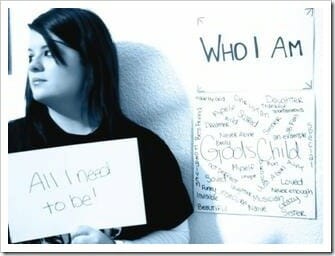 In my work, I discovered that what teens hated most were “lectures” and to listen to “old time stories” of how life was much better years ago. I collected material on inspiring teenagers who managed to find the balance between the love and uniqueness and put it in a book called ” “Be Special, Be Yourself for Teenagers”, a collection of 8 inspirational teen stories. I gave the stories to teens, parents and educators (my target readers) to fill out a survey about the stories.
In my work, I discovered that what teens hated most were “lectures” and to listen to “old time stories” of how life was much better years ago. I collected material on inspiring teenagers who managed to find the balance between the love and uniqueness and put it in a book called ” “Be Special, Be Yourself for Teenagers”, a collection of 8 inspirational teen stories. I gave the stories to teens, parents and educators (my target readers) to fill out a survey about the stories.
It was very surprising for me to discover that the same story triggered a different reaction based on the readers’ challenges. Teens read the stories from the character’s point of view, teachers paid attention to the educational value of the stories and parents considered the parents’ aspect of the stories. This research was fascinating in itself and gave me material for new stories.
I was happy that the book was valuable for teens and parents alike and the feedback was wonderful. In their feedback, readers wrote about the growth they had experienced while reading the book and the values they had taken from it. Teens said they never knew grown-ups felt and thought like that and parents said the same about their teens.
The stories in the book inspired teens to push through challenges and find their unique identities after “meeting” teens that showed them a way to be the best they can be. It also gave parents an opportunity to discuss with their teens very sensitive issues and channel their behaviour towards responsibility and self-respect.
But I am getting ahead of myself here. Maybe I should first introduce myself and let you in on how this book came about…
My name is Ronit Baras and I am an educator, life coach, parenting and education expert. But most of all, I am a parent, just like you. I have three children each born in a different place in the world, exposed to different cultures and values. My eldest is stepping outside her teen life towards her adulthood, one is in the middle of his teen years and one just got into the “club”. I have been in the “Parenteen club” for many years and escorted thousands of families into healthy and wonderful teen and parenteen experience.
Parenting teens for most parents is no great fun. Unfortunately, teen exposure to social media and the Internet has taken some of the control away from parents, destroyed some values and left teen perception of life to depend on their friends, their social network and media.
“You, the parent, are still the
most influential agent in your teen’s life”
Imagine your teens growing up with an attitude of a motivated person, understanding how much their parents love them and having the strength to hang around friends that are good for them. Imagine them having the integrity to follow their own heart and imagine you are doing it without preaching and with respect towards your teens’ choice.
If you raise such kids, how do you think you would rate your parenting pleasure?
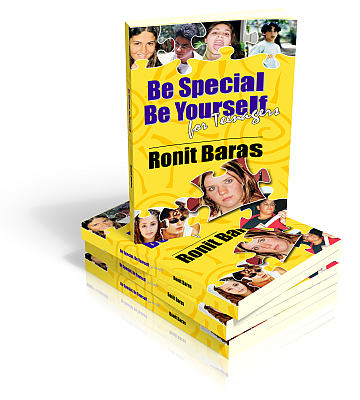 Be Special, Be Yourself for Teenagers is a collection of 8 inspirational stories for teens, about teens – their families, their relationships, their challenges and their triumphs. The choice for the topics came from teens and parents. Most characters in this book are real, as real as you and me, as real as your son and my daughter. They are normal kids, with real challenges and inspiring solutions – real, yet special, just like your kids and mine.
Be Special, Be Yourself for Teenagers is a collection of 8 inspirational stories for teens, about teens – their families, their relationships, their challenges and their triumphs. The choice for the topics came from teens and parents. Most characters in this book are real, as real as you and me, as real as your son and my daughter. They are normal kids, with real challenges and inspiring solutions – real, yet special, just like your kids and mine.
I wanted to create something special to empower teens to adopt a positive attitude towards life and keep the communication between them and the grown-ups in their lives open. I wanted to instil confidence, respect, self worth, trust and love as seeds for a responsible, happy life.
I wanted to create something special that will cater for parents’ needs and will allow you to understand your teens better and support them in their most troubled, yet exciting stage of their life. I wanted this book to help parents bridge the gap between grown-ups and teens to eliminate “us” and “them” and start working together. I wanted teens to see the love we have for them.
Each story, teaches teens one of the best lessons in life, by being exposed to inspiring teens who’s struggles and solutions becomes a guide to many possibilities.
- How do you help your children deal with peer pressure? (Bojé’s Magic Powder)
- How do you teach your children to have the courage to be themselves? (Be Special, Be Yourself)
- How do you teach them to overcome adversity? (Curly Lines with Flowers)
- How do you show them that they need to be responsible for their own health (Bojé’s Magic Powder)
- That you can’t please everyone (Be Special, Be Yourself)
- That circumstances make people see things differently (The Building of Life)
- That there may be no one ‘correct’ point of view, just people (The Building of Life)
- That there is always help if you look for it (The Guidance Counsellor)
- That grown-ups have problems and need love too (Love Me, Love Me Not).
- The feedback I have received from readers of the book speaks for itself.
Take a peek inside Be Special, Be Yourself for Teenagers
STORY #1: Bojé’s Magic Powder
Discover what teens feel about their body … what they think about their health …why they are so preoccupied with diets …what will happen if you do not put a stop to it … (starting on page 9)
We all diet, we don’t really know why
STORY #2: Beauty Queen
What teens think about beauty … the truth about beauty contests … how teens survive pressure from home and from their friends … what kinds of friends are good for your kid …what is really important to your teen … (see for yourself from page 28)
I felt bad at the end, but I would have done the same thing
STORY #3: Be Special, Be Yourself
Find out what teens think about peer pressure …what motivates teens …what it means for them to be socially accepted … what are the dangers of the “disease to please” … why school is not only about academic achievements … the secret to being true to yourself … (revealed from page 37)
It’s the same for me. It is so hard, so hard to be me, I don’t even know what it means…
STORY #4: Curly Line with Flowers (Parents and Teens’ Favorite!)
Uncover the truth about learning difficulties … how learning difficulties translate to social difficulties … who else has difficulties … what never to say to your child … how to turn every difficulty into an advantage … the best way to help your teen … how to be an inspiring role model … (learn on page 47)
Difficulties are only opportunities in disguise
There is lots of help out there and we are not alone
STORY #5: The Building of Life
How teens see responsibility … how their personal experiences determine their perception … the best and easiest way to experience social justice without the headaches of reality …what politics has to do with justice … the best way to make teens aware of their social surroundings … what they will never learn in school, but everyone expects them to know … (look at page 77)
It was a good way to look at justice
It seemed so easy at first … do you mean voting is that complicated
STORY #6: The Guidance Counselor
Why teens have difficulty trusting adults …why teens are at the mercy of grown ups … how can adults help teens … why do we need to have a support system to help teens at school … why the reputation teens have is not true for all of them … what goes on in the head of an abused teenager … (find out from page 94)
It was about handling bullying through inner strength
Some adults are OK
STORY #7: Love Me, Love Me Not (Parents and Teens’ Favourite!)
How hard it is to be a teen … why what they wear is not a representation of who they are inside … how academic achievements have nothing to do with their hairstyle … what they think of their teachers … why parents are human too … love wanted at all ages … what fears we have … why when facing a difficulty, your teen needs you more … what goes on in their head when they are not careful … a good introduction to adulthood … (page 101)
Grown-ups are just human
I loved this story and I asked my mum to read it too
STORY #8: Biography
What you should never to keep away from your teen … everything you think your teen can see, but they really can’t … secrets you should never hide from your teen … what will happen if you do not tell your teen how much you love him or her … how families get close in the face of adversity and difficulty … (read from page 144)
We should all do an autobiography. I know I should
Reading this book allows teenagers to develop some critical thinking and question some of their own behaviours and thoughts. It gives parents the tools to discuss such behaviours in a non-confronting way and help their teens realize that parents are not the enemy but a resource and the best support out there.
Each story allows kids to discover things that otherwise would learn only later in life. Each story offers new understandings.
1. My parents love me
It is truly amazing how much love and support teens need, despite their “I can handle it” façade, and how late they discover their parents love them. The story Biography talks about a high school kid who has to write the biography of a family member and ends up writing about his mother. In the process, he discovers how special he was for his family.
For most teens in my survey, this story was a revelation of the possibility they were loved so much by their own parents and families. For the adults in my survey, it was an emotional story expressing how much they loved their own kids and students.
The love is there, but cannot be recognized by teens.
2. Academic achievements are important
 They are important because they are wonderful confidence boosters and are tightly linked to social status and self image. While succeeding at school, teens practice being successful so many times they get used to being successful.
They are important because they are wonderful confidence boosters and are tightly linked to social status and self image. While succeeding at school, teens practice being successful so many times they get used to being successful.
It is a bit sad to discover after leaving high school that doing it for Mum or Dad or to please the teacher was not the right motivation.
3. Failure is not the end of the world. It builds character
It is amazing how late in life we discover that the things that the “hard knocks” of our teen years, which made us too embarrassed to show our face at school, were not as bad as they seemed back then. This is exactly the reason the teen years are so hard – teens have some awareness of their society, but they do not have enough life experience to know that “this too shall pass” and that they may in the future get out of the other side of this “failure” much stronger. I think the sad thing is that many adults never learn this.
4. What others think about me is none of my business
For 20 years, people grow up defining themselves in accordance with what others think about them. It starts with their parents, teachers, other family members and reaches a stage when what their friends think about them determines who they are. It takes time and often circumstances to get out of their comfort zone after high school and discover that environment is important. You can be a geek in one place and cool in another. Sometimes, they learn it too late, the hard way.
5. Socializing with the right crowd
Teens socialize with who they can. Many times, they do not choose their surroundings and who they hang out with is totally circumstantial – their neighbours, their classmates, their team mates, etc. But who you spend time with becomes your point of reference. If they are good kids having fun and being responsible, you will be “pressured” to be a good kid too, have fun and be responsible. If you hang around the troublemakers, you will be pressured to be just like them.
It is very important for teens to choose their friends wisely.
6. “It won’t happen to me” is dead man mentality
There are thousands of people in graveyards or handicapped who have failed to learn this lesson. No one is immune to accidents, to drugs or to alcohol, not even if he or she is a good kid with many A’s in Math or Science. If you do something you should not do, you are playing with your life.
Being on the road means subjecting yourself to other people’s behaviour. In some situations, there is nothing you can do when the bad thing happens. You can only be better prepared and make better choices ahead of time.
This particular lesson is an example of learning something too late when the result is death.
7. Staying healthy is not just for old people
Your physical and emotional health will make sure your body functions properly and for a long time so you can experience life with it. Being skinny like Barbie is not the ideal weight and although “cool” and health do not go hand in hand sometimes, your health is essential to your success in life. Take care of yourself and remember your health is more important than being cool. If you discover it too late, some things just cannot be fixed any more (read the story of Karen Carpenter). The story of Bojé’s magic powder discuss health and being cool.
 8. Gossip gives imaginary power, but only brings trouble
8. Gossip gives imaginary power, but only brings trouble
I guess this is something we learn over time. I have met some inspiring teens who understood this, but they were rare. I know many adults whose teen years are long gone and still do not understand that there is no real power in gossip.
When there is friction in any relationship, the best way to handle it is directly. Getting another person involved only aggravates the situation and makes reconciliation harder, especially when the other person pours more fuel over the fire. In relationships, the formula is simple: the more people, the harder and what you say, you cannot take back.
Although being assertive may seem difficult, it is always the best option.
9. There is lots of help out there
One of the biggest discoveries of my survey was that there is lots of help out there teens are just not aware of. For me, this is a classic Catch-22. Teens need help to discover where teens can get help. Teens also need help to find ways of helping themselves when they do not know what kind of help they can get… All too often, teens discover the abundant help around them too late, when they have already done something silly or when they have overcome their problem.
Key Issues and Messages Teens identify in the Book
Bojé’s Magic Powder (page 9)
- Body image
- Health
- Peer pressure
- “We really need to be responsible for our health”
Beauty Queen (page 28)
- Inner beauty vs external beauty
- Living with a disabled parent
- Friendship
- Courage
- Choice
- “Beauty is on the inside”
Be Special, Be Yourself (page 37)
- Handling pressure
- Self worth and self acceptance
- The courage to be yourself
- “You can’t please everybody anyway!”
Curly Line with Flowers (page 47)
- Being different
- Living with a learning difficulty
- Parent support
- Teachers can be a great help
- Success at school
- Dreams and ambitions in life
- Motivation
- Overcoming challenges
- “Never give up”
- “Find your special gift. We all have one”
The Guidance Counselor (page 77)
- Trust
- Authorities
- Domestic violence
- Bullying
- Inspiring grown ups
- Inspiring teens
- Care for one another
- Inner strength
- “There is always help if you look for it”
The Building of Life (page 94)
- Justice
- Politics
- Fairness
- Wealthy vs poor
- Leadership
- Management
- “Circumstances make people see things differently, but there is no single ‘correct’ point of view, just people”
Love Me, Love Me Not (page 101)
- Friendship
- Confidence
- Relationship
- Success at school
- Fear
- Grief
- Forgiveness
- Communication
- Sex
- Abuse
- “Grown-ups need love and have problems too”
Biography (page 144)
- Gratitude
- Communication
- Friendship
- Love of parents
- Parent-teen conflicts
- “Our parents love us more than we know”
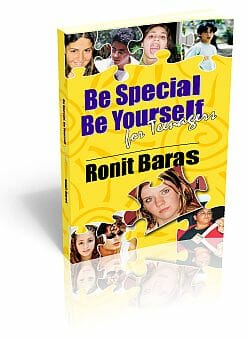 161 pages of responsible, inspiring, motivated and well-balanced teens!
161 pages of responsible, inspiring, motivated and well-balanced teens!
And easy parenting!
This is what these stories will not give you!
If you purchase this book, your life and your relationship with your teen will not change overnight. I will not tell you that, because it won’t!
If you are looking for quick fix that will hypnotize your teen to think that life is different from what he/she thinks, this is not what this book will do to you.
Why?
Because this is not how change happens.
The science of change
Change brews for a long time and the lead up to the change takes a while. Trust me! Quick fix and sustainability don’t go hand in hand. You want a change that will last, not an artificial change that means nothing at all.
I have been coaching and working with teens and their parents and teachers for 38 years and I know the science of change. Put it on slow cooker and the meal will be tastier.
What this book will do is plant a seed in your teen’s mind that you need to water with love and attention. It will give you an opportunity to present things to your teen in a very non- confronting way and allow you to start a conversation on topics that are very important for teens.
It will allow you to expose your teens to the right attitude towards themselves and their surroundings and help them adopt values that will shape their character and build self-esteem and confidence for the rest of their lives!
Interview with Ronit Baras on her book “Be Special, Be Yourself for Teenagers”
What is the book “Be Special, Be Yourself for Teenagers” about?
It is a tribute to my heroes, teens and parents, teachers and friends, people I had met throughout my life, had been great inspiration to me and needed to be known. It is about teens who are juggling the need to be unique with the need to be loved and accepted by others and their wonderful ways to be true to themselves.
When did you start writing?
I started writing when I was 14. I used to read a lot when I was young. I lived in a small town and my friend and I used to ride our bikes to the library once a week and could only borrow 3 books. It took us more than half an hour just to get there. The librarian loved us both and recommended many good books to us. So I read 3 books every week. When I was 14, I already had stories in my head. When I think about it, the stories pretty much asked me to write them.
So you started writing when you were a teenager. Is this the reason you decided to publish “Be Special, Be Yourself for Teenagers” first?
My first book was actually poetry. I am also a poet and have written over 400 poems. When I was 16, I published some of my poems in a collection of young poets’ work. I was very proud. “Be Special, Be Yourself” is a collection of stories I had, mostly for grown-ups. I still have them and they will be published later on. I made a decision to publish for teens first, because I am dedicated to helping teens overcome this tough period in their life. Until I was 16, I had a tough time, so I want to make it easier for other teens.
What do you think is teens’ greatest challenge?
Like everyone else, teens have many challenges. However, they have extra challenges because they realise for the first time that the adults in their life are just human. Parents do not know everything, they cannot do everything and they have fears and problems too. This is very scary. Teens have a major trust crisis, because they can no longer count on the adults in their life to fix everything for them and they need to start taking responsibility for themselves. I think this is heavy for most of them. At that stage, they are very vulnerable to pressure and pressure comes from all around. As much as parents hate to admit it, most of the pressure comes from home. Teens see their parents’ expectations as the biggest source of pressure.
How can the book help solve these problem?
The book contains 8 short stories about teens, their families and friends, their challenges and difficulties and how they handled their pressures. The stories cover body image, peer pressure, parental pressure, domestic violence, school challenges socially and with teachers, learning difficulties, love, hate, sex, relationships and many victories that are very inspiring. It does not solve the problems but offer an elegant solution. Readers have written to me they were very inspired by the stories. It is a book for teenagers and their parents, and both have said it was insightful and helped them understand each other better.
Many authors sell their books as “this is the book that will change your life!” and you don’t, why is that?
Before being an author, I am an educator and a life coach. I believe that everything around us create change in our life. Every person we meet, every experience we have, good or bad or every book we read has the potential to make our life better ( well, it also has the potential to make it worse ) . But the real change happens not when we are exposed to something new but when we do something about it. The book can do nothing to teens and nothing to their parents unless they do something to themselves after they purchase the book and read it.
If you start discussing the ideas of the book and ask yourself and your teen how is the story relates to a “real” story from your life, you will have great answers and it will water the seed that the book offers teens.
Teens and parents reading the book reported that the reading itself made them very reflective and question their own thoughts and ideas about teen years and their parents. I think it is a great ground to grow a better relationship.
Why did you call your book “Be Special, Be Yourself”?
When you go through life coaching, you realise it is very helpful to find your purpose in life and direct your life towards your purpose. I have chosen to be an educator, a facilitator of change in people’s life through teaching, public speaking, coaching and writing. “Be Special, Be Yourself” is my message to the world and this is my answer to the biggest problems in life. I think we need to learn it, teach it and practice it every day of our lives. So I thought it was appropriate to use this as the name of my book.
Do you know if teachers are using the book in their teaching?
One of the stories in the book was written as a class lesson plan. I know of teachers who are using some stories to start conversations in the class and have heard from some teachers using the stories with ESL students (English as a second language) as the language is simple to understand and the reading is very relevant to their age.
I myself run workshops related to the stories in the book. I have workshops for parents, teachers and students based on the book.
What kind of workshops do you conduct relating to the book?
Originally, I ran workshops on that topic long before the book was published. After the publication in 2005, I started running the “Be Special, Be Yourself” workshops for young teens and run some leadership workshops on the same topic. Some schools purchase the workshop and the books and I travel around the world to run the workshops for parents, teachers and teens. People like meeting the author and learn about the messages in the book. It is very exciting, I enjoy it very much!
How can people order “Be Special, Be Yourself for Teenagers” workshop?
They can go to the contact us page, give us some information about the audience, possible dates and location in the world and we will contact them to gather enough information and send them a quote.
How many books have you written?
So far I have written 17 books but published only three. As I said, my first book was poetry. My second published book was “Be Special Be Yourself for Teenagers” and the third one was In the Outback with Jasmine Banks, which is a personal development fiction story for adults. I am currently editing my forth book “Motivating kids” and promised my readers to publish one book a year.
The other non- published books are fiction kids’ books, spiritual books, 1 crime book, 2 sequels, personal development and parenting non- fiction books. At the moment I am writing a psychology fiction book. I enjoy it very much!
Where do you get your ideas from?
Lucky me, the ideas are all around me. I work with many people so, every one of them is a story which wants to be told. I never take them as is; I imagine their life taking different path and see them as videos in my head. I combine many of the people I know. So every character is a mixture of people I have worked with. It is a mixture of circumstances and outcomes.
Many times it is something that someone has said or a question that one of my clients asked me. The best stories are in the “what if?” zone. I ask myself what if he knew this or what if he didn’t and I follow that path.
I also write many articles. I have written over 2000 articles in my life and I have books full of ideas to write about. I just don’t have time to write the all. I am very efficient and organised but still have 24 a day much like everyone else. I could benefit from having 72 hours every day.
How long does it take you to write a book?
I am also a journalist so I research before I start writing. I do the whole plot in my head and build the character in my head before I start writing. When I sit down to write, I already have all the main ideas of the stories, the life of all the characters and what is special about each of them. Even the smallest role, will have a life of his own in my books.
The amazing thing is that once I start writing, the book takes its own shape. It is almost out of my control. Some things happen in the stories that I never planned. I feel like the story plot takes me to a journey. As I said, I wrote over 17 books and over 25 stories over the years and none of them came out exactly as I planned it. They all came out different, I think they came out better!
Some books I write in a week. Others take me months or a year. The editing, publishing, typesetting and all the other things related to publishing a book, takes longer. Way too long to my opinion.
Where can parents and teens find the book?
In Australia, the book can be ordered in several book stores, including Angus and Robertson, but the easiest way is to order it from Be Happy in LIFE directly, right at the bottom of this page, because you can then buy it as an e-book too.
There are some distributors in the USA selling the book, but again, it is cheaper to order it from Be Happy in LIFE.
About Ronit Baras
 Ronit is an educator, life coach, author, journalist, NLP practitioner and a justice of the peace. She is an international speaker and presenter and has been writing, coaching and teaching emotional intelligence techniques for 38 years around the world (USA, Israel, Thailand, Singapore & Australia). She has developed a range of workshops, presentations, and special programs, which have been hugely successful and have touched the lives of millions of people around the world.
Ronit is an educator, life coach, author, journalist, NLP practitioner and a justice of the peace. She is an international speaker and presenter and has been writing, coaching and teaching emotional intelligence techniques for 38 years around the world (USA, Israel, Thailand, Singapore & Australia). She has developed a range of workshops, presentations, and special programs, which have been hugely successful and have touched the lives of millions of people around the world.
Ronit is teaching at the University of Queensland and training for the Institute of Public Administrators (IPAA) Queensland. She is the State director of the Together for Humanity Foundation and was the Global Citizenship School program director. She has conducted many motivational presentations and workshops on personal development, excellence in teaching, global citizenship, relationship and parenting in Australia and overseas. In the last 4 years alone, she ran workshop, trainings days, was a keynote speaker and presented to over 57,000 people.
For her community work, she was nominated twice for the Australian of the year and for the International Women Peace Award by the Women’s Federation for World Peace.
With her holistic approach to education and emotional intelligence, Ronit has helped thousands of students discover their strength and uniqueness and leverage them to succeed in school and life. Her writing has been published in educational magazines around the world.
Her practical parenting blog Family Matters is a great resource for thousands of parents and teachers with over 1,500 articles on family life, parenting, personal growth and education and attracts 50,000 readers each month. The blog was launched in 2004 and attracted millions of readers from around the world.
Research shows that investing in emotional intelligence and equipping student with social and emotional management skills yields the best results. Ronit strongly believes that success requires a winning attitude which includes self-awareness, confidence, uniqueness, a positive mindset, courage, creativity and good social skills and that all those skills can be learned.
Ronit strongly believe teens face many challenges but with parents and teachers’ help they can come out of the other side of teen years confident, motivated, focused and with a strong sense of identity.
Ronit’s philosophy for teens is:
Confidence, resilience and motivation are essential in the road to success and we gain them by knowing ourselves, taking responsibility and being focused. No one is born with those skills but everyone can learn them and the sooner the better. I believe that teen can achieve success, emotional health and well being by adopting the simple rule of “Be Special, Be Yourself”
161 pages packed with value
“Be Special, Be Yourself for Teenagers
Belongs in the Home of every family with teenagers”
As you can see from what teens have said about each book, “Be Special, Be Yourself for Teenagers” contains messages guaranteed to support your teen, instil confidence and inspire him or her to live a responsible and happy life.
“Be Special, Be Yourself for Teenagers” takes your teens’ hands and leads them to a safe place, where parents and teens communicate and support each other through challenges towards a loving and happy relationship.
And what is really exciting is you and your teen can start reading this e-book within a minute. You have the choice of receiving this e-book as a convenient PDF file straight to your computer (it works on PCs and Macs too!). So within minutes, you can be handing your teen the seeds for wonderful life lessons this book has to offer.

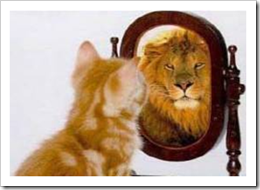 Teens think of themselves as “troubled teens”
Teens think of themselves as “troubled teens” I Wish I Knew This When I Was Young
I Wish I Knew This When I Was Young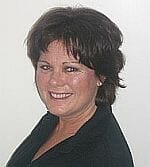 This collection of stories samples a wide range of significant social and emotional experiences in the lives of a range of young adults, their friends and families. Ronit has managed to convey deep wisdom and sage advice about values and behaviour, self esteem and relationships, in a style which refrains from preaching, but rather allows characters, events and storylines to illuminate issues, struggles and resolutions, in a manner which is particularly engaging for young people.
This collection of stories samples a wide range of significant social and emotional experiences in the lives of a range of young adults, their friends and families. Ronit has managed to convey deep wisdom and sage advice about values and behaviour, self esteem and relationships, in a style which refrains from preaching, but rather allows characters, events and storylines to illuminate issues, struggles and resolutions, in a manner which is particularly engaging for young people.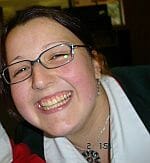 We face peer pressure every day, so it’s cool to read a book that goes against everything people look for.
We face peer pressure every day, so it’s cool to read a book that goes against everything people look for. 8. Gossip gives imaginary power, but only brings trouble
8. Gossip gives imaginary power, but only brings trouble
